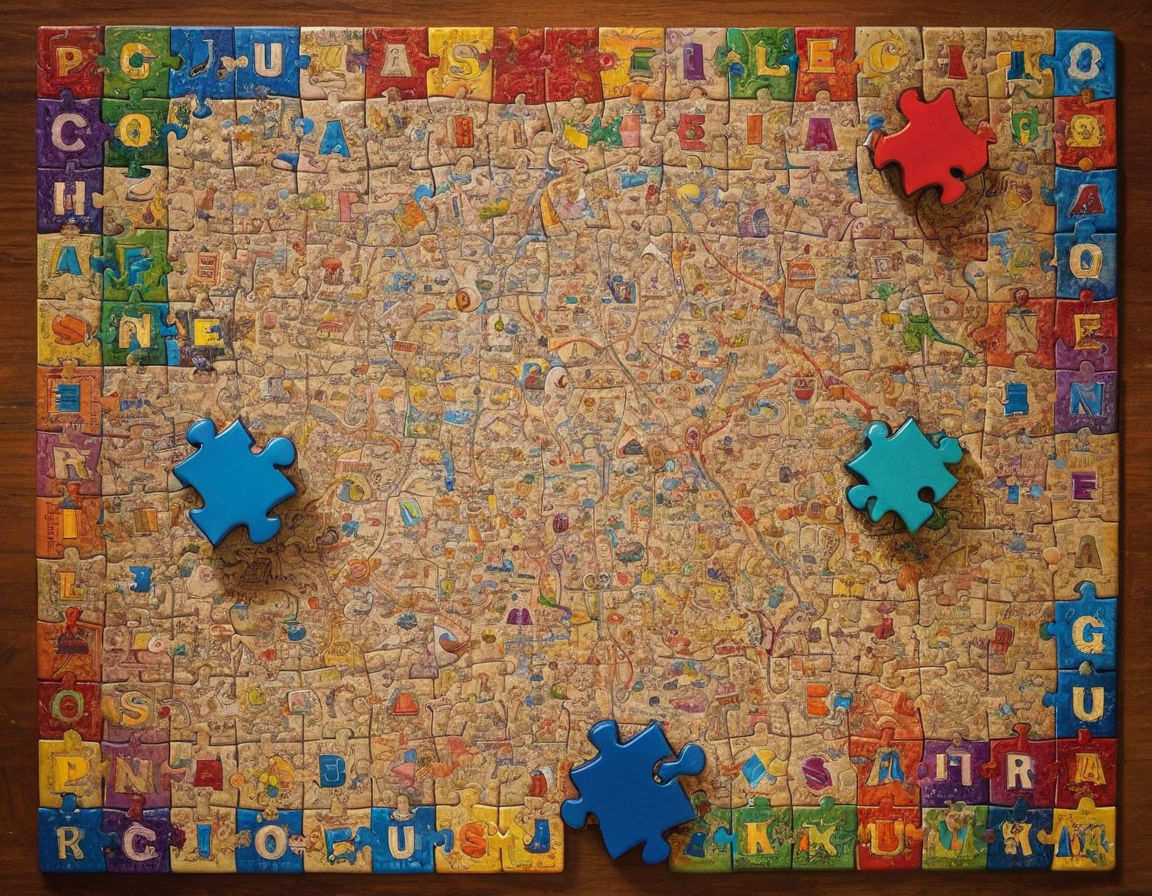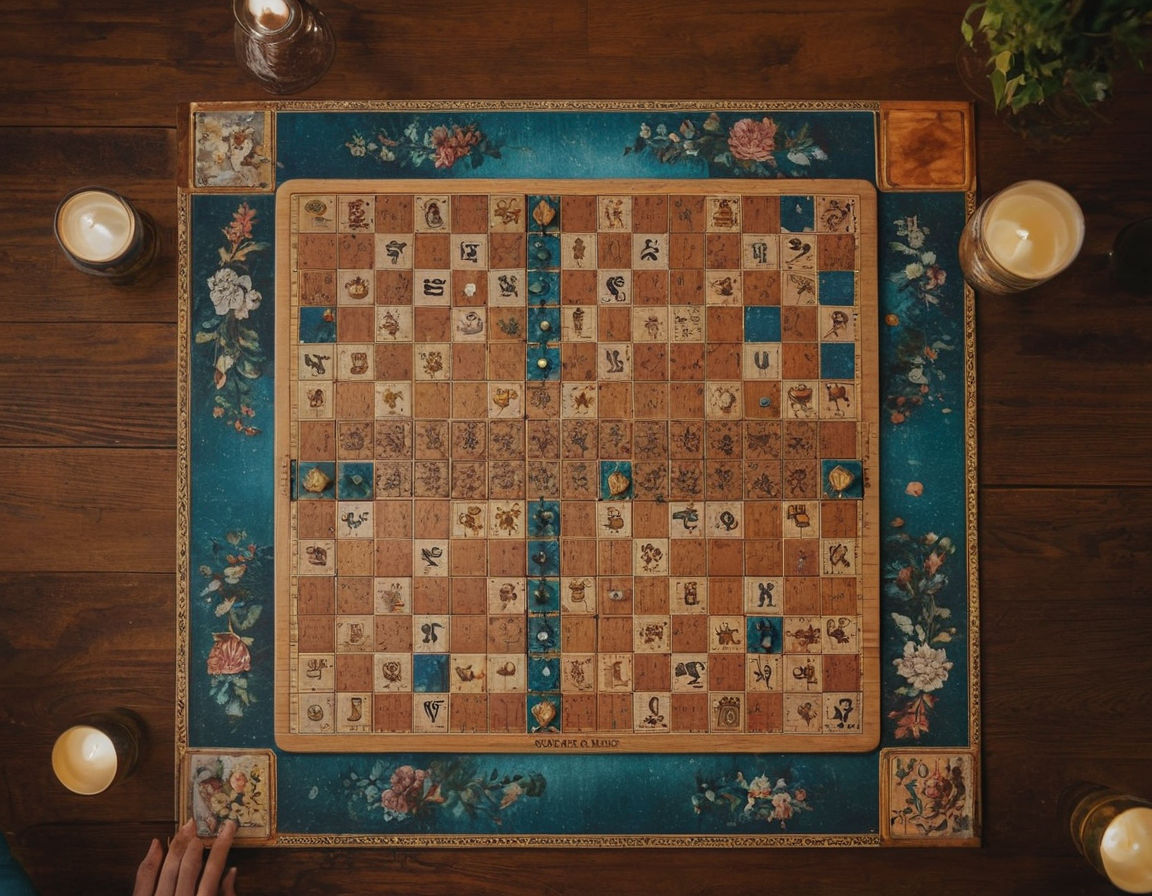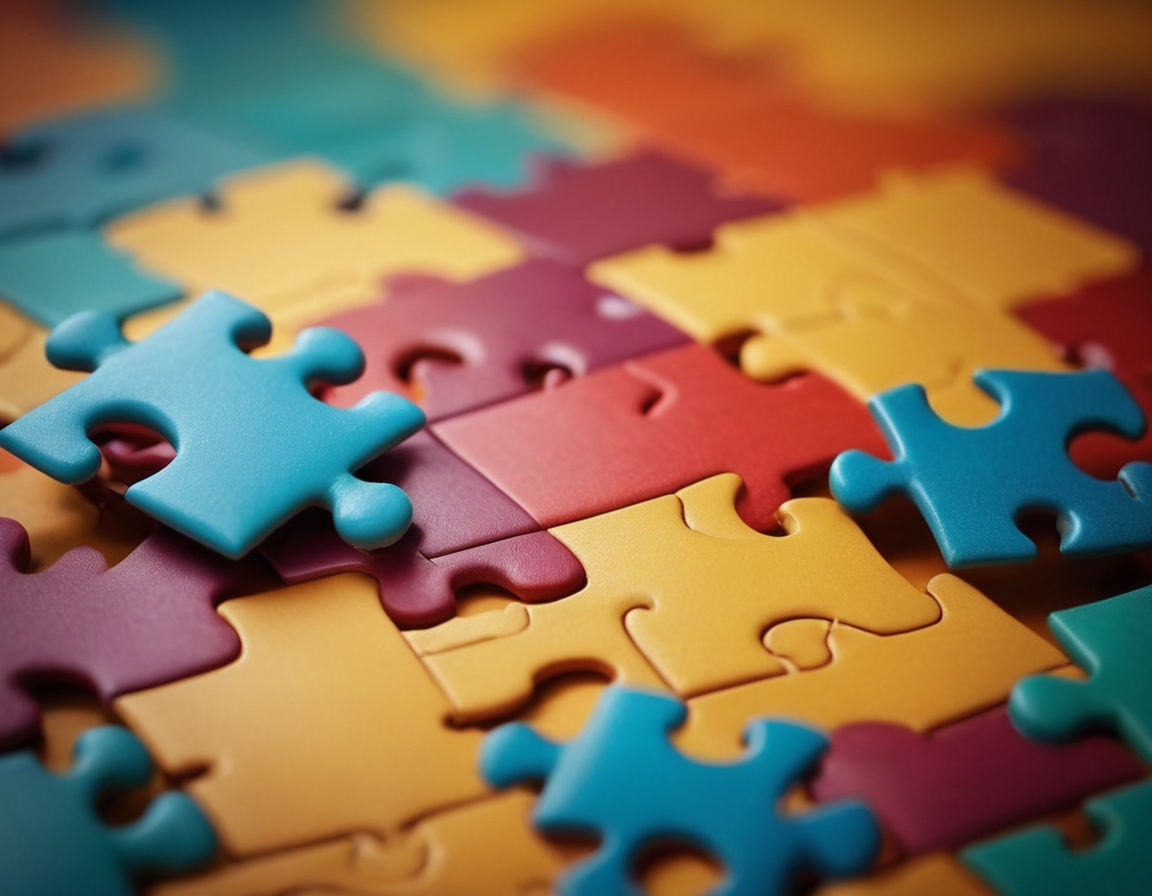Introduction
Puzzle games have gained significant popularity in the gaming world for their ability to challenge and entertain players of all ages. These games, known for their engaging and thought-provoking nature, offer a unique experience that sharpens cognitive abilities and problem-solving skills. Whether it's solving intricate riddles or navigating through complex mazes, puzzle games provide a stimulating mental workout that can be both fun and rewarding. In this article, we will explore the world of puzzle games, uncovering the techniques to master them and the mind-enhancing benefits they offer.
The Fascinating World of Puzzle Games
The evolution of puzzle games traces back to the early days of gaming, where simple yet captivating challenges laid the foundation for what has now become a diverse genre. From classic jigsaw puzzles and crosswords to modern digital platforms, puzzle games have continually evolved to cater to a wide audience. These games not only entertain but also engage players in critical thinking, strategic planning, and creative problem-solving.
Types of Puzzle Games:
Logic Puzzles: Games like Sudoku and Minesweeper test players' logical reasoning and deduction skills.
Pattern Recognition: Titles such as Tetris and Bejeweled require quick thinking and pattern recognition to succeed.
Spatial Awareness: Portal and The Witness challenge spatial awareness and visualization abilities.
Word Puzzles: Word Search and Scrabble enhance vocabulary and linguistic skills.
Physics-Based Puzzles: Games like Cut the Rope and Angry Birds involve physics principles for solving puzzles.
Understanding the Cognitive Benefits
Playing puzzle games is not just about entertainment; it's also a way to exercise the brain and promote cognitive wellness. These games offer a range of cognitive benefits that contribute to overall mental development and well-being. By engaging in puzzle-solving activities, individuals can significantly enhance their problem-solving skills, memory retention, and cognitive agility.
Cognitive Benefits of Puzzle Games:
Problem-Solving Skills: Puzzle games challenge individuals to think critically and develop innovative solutions to complex problems.
Memory Enhancement: Remembering patterns, sequences, and rules in puzzle games can improve memory retention and cognitive function.
Increased Focus: Engaging with challenging puzzles can enhance concentration and focus.
Mental Stimulation: Regularly solving puzzles stimulates mental processes and keeps the brain active, potentially reducing the risk of cognitive decline.
In conclusion, mastering puzzle games involves more than just solving enigmatic challenges; it's an opportunity to hone cognitive abilities, foster creativity, and enjoy the thrill of unraveling mysteries. By delving into the fascinating world of puzzle games and understanding their cognitive benefits, players can embark on a journey of self-improvement while having fun along the way.
Enhancing Problem-Solving Skills
In the realm of puzzle games, there exists a strong correlation between playing these intellectually stimulating games and enhancing one's problem-solving skills. Engaging in puzzle games requires players to think critically, analyze situations, and strategize solutions to overcome challenges. By regularly immersing oneself in the world of puzzle games, individuals can experience notable improvements in their problem-solving abilities.
The Impact of Puzzle Games on Problem-Solving

Cognitive Stimulation: Puzzle games provide a mental workout that enhances cognitive functions such as memory, attention to detail, and logical reasoning.
Enhanced Decision-Making: Constant exposure to complex puzzles hones the player's decision-making capabilities, as they learn to evaluate multiple options and choose the most effective solutions.
Persistence and Resilience: Overcoming difficult levels or solving intricate puzzles instills a sense of persistence and resilience, encouraging players to tackle challenges head-on without giving up easily.
Implementing certain strategies can further amplify the benefits of puzzle games in boosting problem-solving skills:
Strategies to Boost Problem-Solving Skills
Break It Down: When faced with a challenging puzzle, break it down into smaller, more manageable parts to simplify the problem-solving process.
Trial and Error: Experiment with different approaches and learn from mistakes to adapt strategies and develop a deeper understanding of the puzzle dynamics.
Pattern Recognition: Train your brain to identify patterns within puzzles, as recognizing recurring elements can streamline problem-solving.
By actively incorporating these strategies into gameplay, individuals can harness the full potential of puzzle games to sharpen their problem-solving acumen and approach challenges with a strategic mindset.
Exploring Game Strategies
To excel in the diverse world of puzzle games, it is essential to familiarize oneself with effective strategies tailored to different game formats and puzzle types. Each category of puzzle games presents unique challenges that require distinct approaches for successful navigation and solution-finding.
Effective Strategies for Various Puzzle Games
Crossword Puzzles: Focus on filling in the easier clues first to build momentum and uncover interconnected answers.
Sudoku: Employ the "pencil marking" technique to eliminate potential numbers and narrow down possibilities efficiently.
Jigsaw Puzzles: Begin by sorting pieces based on color or edge patterns to establish a structured approach to assembling the puzzle.
Navigating through challenging puzzle scenarios can be significantly eased by incorporating the following tips and tricks:
Tips and Tricks for Puzzle Mastery
Time Management: Allocate time strategically to different aspects of the puzzle-solving process, ensuring efficient progress.
Visualize Solutions: Visualize the end goal or solution to the puzzle before delving into the intricate details, helping maintain focus and direction.
Collaborative Problem-Solving: Engage in group puzzle-solving sessions to leverage collective insights and expertise for more challenging puzzles.
By honing these game strategies and embracing valuable puzzle-solving techniques, players can elevate their gameplay experience and achieve mastery in a diverse array of puzzle games.
Unleashing the Power of Mind Games

Within the realm of puzzle games lies the concept of mind games, which involves stimulating mental exercises that promote cognitive development and enhance mental agility. Engaging in mind games within puzzle scenarios not only offers entertainment but also nurtures invaluable skills essential for personal growth and cognitive acuity.
The Role of Mind Games in Cognitive Development
Enhanced Memory Retention: Mind games challenge memory retention and recall abilities, fostering mental sharpness and cognitive agility.
Critical Thinking Skills: By presenting intricate problems and puzzles, mind games prompt players to think critically, analyze situations, and develop innovative solutions.
Enhanced Concentration: Engaging in mind games cultivates a focused mindset, improving concentration levels and attention span.
The integration of mind games into puzzle gameplay serves as a holistic approach to mental stimulation and cognitive enhancement, contributing to overall well-being and mental acuity. By immersing oneself in the stimulating world of mind-enhancing puzzle games, individuals can embark on a journey of self-improvement and cognitive growth.
Leveraging Puzzle Games for Personal Growth
Puzzle games have long been recognized for their ability to offer more than just a fun pastime. They can serve as powerful tools for personal growth, allowing individuals to sharpen their cognitive abilities in an engaging and enjoyable manner. By incorporating puzzle games into daily routines, individuals can reap numerous benefits, from improved problem-solving skills to enhanced memory retention. Here are some key points to consider when leveraging puzzle games for personal growth:
Mental Exercise: Engaging with puzzle games regularly provides a unique form of mental exercise. These games often require critical thinking, creativity, and strategic planning, all of which are instrumental in keeping the brain active and agile.
Stress Reduction: Solving puzzles can act as a stress reliever by diverting attention from daily worries and promoting a sense of accomplishment upon successfully completing a challenging puzzle.
Enhanced Problem-Solving Skills: Puzzle games inherently challenge players to think outside the box and come up with innovative solutions to complex problems. This constant problem-solving practice can significantly enhance an individual's ability to tackle real-life challenges effectively.
Incorporating Puzzle Games into Daily Routines
Integrating puzzle games into daily routines can be a simple yet effective way to stimulate the mind while enjoying a leisure activity. Consider the following strategies to make the most of puzzle games for personal growth:
Morning Brain Teasers: Kickstart your day with a short puzzle game session to wake up your brain and set a positive tone for the day ahead.
Lunchtime Challenges: Take a break from work or study by engaging in a quick puzzle game during lunchtime. It can help refresh your mind and boost productivity for the rest of the day.
Evening Relaxation: Unwind in the evening by solving puzzles that are not only entertaining but also mentally stimulating. This can serve as a relaxing way to end the day while keeping your mind sharp.
By weaving puzzle games into daily routines, individuals can transform mundane moments into valuable opportunities for personal growth and cognitive enhancement.
Conclusion
In conclusion, puzzle games offer a plethora of benefits beyond mere entertainment. They have the power to enhance cognitive functions, boost problem-solving skills, and provide a creative outlet for individuals of all ages. As we navigate the digital age, exploring different puzzle games can be a gateway to continuous mental stimulation and personal development.
Incorporating puzzle games into our lives not only adds a layer of enjoyment but also contributes to improving our cognitive abilities over time. Therefore, embracing the world of puzzle games is a step towards engaging in meaningful challenges that foster growth and mental agility. So, immerse yourself in a variety of puzzle games and unlock the endless possibilities they hold for personal growth and development.




